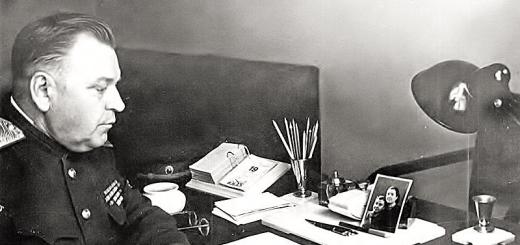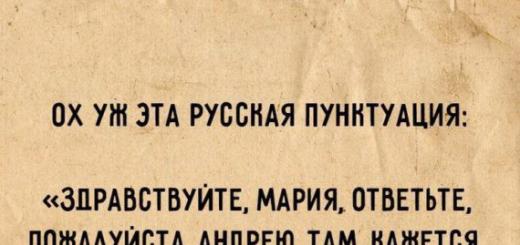Michael Ende
A little introduction from the translator
This translation is the first experience of this kind in my practice.
My whole life until the age of 53 was spent in Russia, and I belong to a little-known and a little strange nationality - Russian Germans. These are not German Germans occupying a powerful niche in the human community, but a part of the German people that arose in the process of long-term adaptation - first in Tsarist, then Soviet Russia, ousted from Germany after the seven-year war.
It is amazing that my ancestors for two and a half centuries were not assimilated by the mighty Russian mentality and Russian culture to the extent that one might expect. Their religious-sectarian upbringing and peasant origin formed the strongest immunity against such dissolution. And this despite all the social upheavals that befell the Russian state in the ill-fated 20th century - especially during the war with Nazi Germany, when Russian Germans were naturally but unfairly identified with the German fascists, so hated in the USSR.
My childhood and adolescence just fell on that period of history. But it was precisely after the second abolition of "serfdom" in 1955 (the release of collective farmers from registration to villages with the issuance of passports to them and the liquidation of the special commandant's office for Russian Germans) and the emergence of relative freedom, assimilation, quite voluntary, began to quickly change the mentality of Russian Germans towards Russian culture and Russian way of life.
From childhood I was drawn to learning, which did not at all correspond to the general mood of the conservative Russian German village, and at the age of 15 I escaped from the religious and peasant environment and plunged into civilization, settling in a hostel and enrolling in a technical school in the large Siberian city of Omsk (1952).
At that time I read a lot and, given the current trend of literature and the media, quickly moved away from religion, which in our home had the character of tedious and painful moralizing.
In general, if we discard the negative consequences of that “civilized” life that grinded up millions of destinies of village boys and girls who came to the city, one thing is certain: the German part of this great urban migration quickly “Russified”, losing its language and centuries-old family traditions.
I do not regret at all that the great, not rationalistic, to a certain extent mystified Russian culture has become my culture, my spiritual environment. I can’t and don’t want to compare it with German, which is alien to me, let me not judge her.
I stumbled upon M. Ende's book "Momo" quite by accident after moving with my family to Germany. A chapter from it was included in a manual for the study of the German language and the German way of life for immigrants and immediately made a strong impression on me with its humanistic orientation and the author's absolute rejection of the rationalistic, unspiritual construction of life in a capitalist society.
With reason, you well understand that an alternative to the life of today's West, which requires maximum realism, can be calm spiritual communication and contemplative peace, which require much less material consumption. What is closer to the ideal is a philosophical question. But that is another topic for another time. For now, I will only note that the ideas of Jesus the Nazarene at one time looked much more absurd and impossible. And today they are the core of life for most of humanity. One can, of course, object that even in Christian Europe life is still far from the proclaimed norms. Nevertheless, Christianity is a strong and unshakable foundation, and the building on it will continue to be built and improved in accordance with the changing life.
While reading "Momo" I was constantly haunted by the feeling that this is a narrative from the "silver" period of Russian literature of the 19th century, and not a modern bestseller.
Then I took up entrepreneurship for a long time, not spending all my time on it very successfully, but the idea that the book needed to be brought to the Russian reader did not leave me. This need has become especially acute in recent years, when the idea of God-seeking took possession of my consciousness.
And now about the book and its heroine - the little girl Momo, who had the moral strength and courage to resist the gray, all-absorbing power of Evil.
She appears in the vicinity of a big city, where people live slowly, rejoice and grieve, quarrel and make peace, but most importantly, they communicate with each other, and cannot live without it. They are not rich, although they are not lazy at all. They have enough time for everything, and it never occurs to anyone to save it.
Momo settles in an ancient amphitheater. No one knows where she comes from or what she wants. She doesn't seem to know it herself.
Soon it turns out that Molyu has a magical and rare gift to listen to people so that they become smarter and better, forget all the petty and absurd things that poison their lives.
But children especially love her, who, with her, become extraordinary dreamers and invent fascinating games.
Gradually, however, an evil force imperceptibly, invisibly and inaudibly intervenes in the lives of these people in the form of gray gentlemen who feed on human time. For their countless horde, a lot of it is required, and the gray gentlemen are talented and stubbornly creating an entire industry of stealing time from people. They must convince every person that it is necessary to rationalize one's life as much as possible, not to waste on such unpromising matters as communicating with friends, relatives, children, and even more so on “useless” old people and the disabled. Labor cannot serve as a source of joy, everything must be subordinated to a single goal - to produce the maximum product in the shortest possible time.
And now the former quiet city is turning into a huge industrial center, where everyone is in a terrible hurry, not noticing each other. Time is saved on everything, and it should become more and more, but, on the contrary, it is more and more lacking. Some kind of convulsive, extremely rationalized way of life is taking shape, in which every lost moment is a crime.
Where does the "saved time" go? It is quietly stolen by the gray gentlemen, putting it in their huge bank vaults.
Who are they - gray gentlemen? These are demons that incline people to evil in the name of a tempting goal. Tempting them with the charms of life, which can only be achieved with great effort by saving every second, the gray gentlemen, in fact, force people to sacrifice their entire meaningful life. This chain is false, it does not exist at all, but it beckons everyone until death.
And Momo has a lot of time, and she generously gives it to people. She is rich not in the time that can be materialized, but in the time she gives to others. Her time is spiritual wealth.
Naturally, Momo becomes for the gray gentlemen the embodiment of a worldview that is dangerous for them, hindering their plans for a total reorganization of the world. To remove this obstacle, they give the girl expensive mechanical toys, clothes and other things. All this should shock Momo and make her give up any further attempts to embarrass people. To do this, she herself needs to be drawn into a crazy race to save time.
When the gray gentlemen fail, they throw all their strength into eliminating the resistance they do not understand. In the process of this struggle, they learn that Momo can lead them to the place where people are given life time, which everyone must dispose of with dignity. To take possession of the primary source of all human time - rationalistic demons could not even imagine such luck!
There is a direct analogy with the Christian postulate here: each person is given a Soul - a particle of God, and he is also given the right to choose how to dispose of it. Earthly temptations and pride lead a person away from God, from spiritual union with Him, and he voluntarily impoverishes himself, his spiritual life.
The quintessence of the spiritual and religious content of the book is set out in chapter 12. Momo ends up in the place where the time of all people comes from. Here it is quite obviously identified with the human soul. Time is the soul given by God to man in his heart, and Master Hora distributes it. He is obliged to endow each person with the time that is intended for him.
However, thieves-demons steal it from people, and neither the Distributor nor the Creator can or, from higher considerations, do not want to prevent this. People themselves must manage the time allotted to them - their soul - and protect it themselves.
A watch is only an imperfect reflection of what each person has in his chest, in his heart - his soul. “...So you also have a heart to feel the time. And all the time that is not felt by the heart is lost, like the colors of the rainbow for the blind or the song of the nightingale for the deaf. Unfortunately, there are blind and deaf hearts that do not feel anything, although they beat. Deaf and blind hearts are hardened souls, deaf to the calls of God.
One evening Michael Ende arrived in Palermo and went out for a walk. On a large square, he saw a man who was telling stories to the listeners who surrounded him.
"One plot seemed familiar to me. When the narrator paused, I asked what kind of story it was. And the man replied that this was a book by Alexandre Dumas, which he inherited from his grandfather. The novel captivated him so much that he became "Look," I said to myself then, "this is the goal to strive for: so that even a hundred years after your death, the stories that you invented would sound on the streets of Palermo from the mouths of the storytellers."
After this fateful meeting, the novice writer Ende left dramaturgy and work on the radio, and began to write children's books. "The Neverending Story", "The Adventures of Jim Buttons", "The Magic Punch", "School of Wizardry" - this is an incomplete list of fairy tales for which you need to thank the storyteller from Palermo. Well, and Michael Ende, of course, too.
“All my books come into being in different ways. I wrote Jim Button in such a way that, having composed the first sentence, I did not know how the second would look like, and I myself was in suspense all the time, watching the action as if from the side ...
My creative method is rare for a writer. Probably the reason is that my father was a surrealist artist. I work not as a writer, but as an artist. The artist will often start from the brightest angle, gradually painting the rest. Of course, I have an internal idea, but it constantly changes during the work. So, the first sentence that begins "The Infinite Book" is now in the twelfth chapter ...
At first, I always write by hand. My manuscripts are full of corrections, transfers of pieces of text from one place to another, abbreviations. I can't remember if I had even one page that I didn't correct. Then I retype everything, watch how it reads and find new flaws ...
I write very slowly, sometimes I sit for a quarter of an hour on one sentence, thinking it over. Enjoying it - so that it can be twirled and viewed like a picture. But for me it is not only a picture, but also a melody. I care not only how it looks, but also how it sounds."
And despite the fact that Ende received the Andersen Prize, children can also read his books.
But I'm sure Ende called his books "children's" because that's the surest way to put them in the hands of adults. Reading them aloud to your child, the parent himself is magically transformed and becomes a little more adequate.
Story "Momo, or a strange story about thieves of time and about a child who returned stolen time to people", was written in 1972, with illustrations by the author. Since then, it has been translated into 30 languages and has won a bag of awards.
This tale tells about the most common phenomena for a normal city person: lack of time, depression, loss of interest in life.
All these things happen, according to Ende, because of the Gray masters. They, the employees of the savings bank of time, seduce people with false promises and steal time from them. Time for intimate conversations, playing with pets, catching up with children, admiring sunsets and sunrises, is stored by Gray gentlemen in gray concrete vaults, making people's lives gray empty and bleak.
And only a little tramp girl Momo can save the day. She goes in search of the Master of Time so that she can use him to cure her friends of their time-saving fever.
The conversations between Momo and the Master of Time are not childishly thoughtful, and therefore worthy of being recorded in a children's book:
“Can you make sure that the Gray Lords don’t steal people’s time?”
“No, I cannot do that,” the Master of Time replied. “People should decide for themselves what to do with their time. And they have to defend themselves too. I just give everyone what they have to.
Momo looked around.
“Is that why you have so many hours?” Every person has a watch, right?
"No, Momo," the Master of Time objected. All these watches are just my collection. They are just an imperfect copy of what is in the chest of every person. For just as eyes are given to see light and ears to hear sounds, so is the heart given to perceive time. Time, not perceived by the heart, disappears just as the colors of the rainbow disappear for the blind or for the deaf - the singing of birds. Unfortunately, there are many deaf and blind hearts in the world that do not feel anything, although they beat.
Yes, and Momo's friends, apparently, doctors of philosophy and professors of psychology.
Here, for example, is the janitor, Beppo the Sweeper, and his monologue about life:
“You see, Momo,” he said, for example, “it’s like this: here you see a very long street in front of you. And you think: how long is it! Never beat her, you think.
For some time he silently stared ahead of him, then continued:
“And then you start to hurry. And you're in a hurry. And looking ahead, you see that the path in front of you has not diminished at all. And then you tense even more - from fear, and in the end you are completely exhausted and cannot take a step. And the street still stretches ahead. But you can't do that.
For a while he thought. Then he continued:
“You can never think about the whole street at once, you understand? You have to think about the next step, the next breath, the next swing of the broom. All the time only about the following.
He thought again, pondering, before adding:
“Then it brings joy, it is important, then things go well. And that's the way it should be.
And he continued after a long pause:
“Suddenly you see that you have overcome the whole street step by step. And you didn’t notice how, and you didn’t get tired. He nodded to himself and finished, “That's what's important.
Michael Ende
A little introduction from the translator
This translation is the first experience of this kind in my practice.
My whole life until the age of 53 was spent in Russia, and I belong to a little-known and a little strange nationality - Russian Germans. These are not German Germans occupying a powerful niche in the human community, but a part of the German people that arose in the process of long-term adaptation - first in Tsarist, then Soviet Russia, ousted from Germany after the seven-year war.
It is amazing that my ancestors for two and a half centuries were not assimilated by the mighty Russian mentality and Russian culture to the extent that one might expect. Their religious-sectarian upbringing and peasant origin formed the strongest immunity against such dissolution. And this despite all the social upheavals that befell the Russian state in the ill-fated 20th century - especially during the war with Nazi Germany, when Russian Germans were naturally but unfairly identified with the German fascists, so hated in the USSR.
My childhood and adolescence just fell on that period of history. But it was precisely after the second abolition of "serfdom" in 1955 (the release of collective farmers from registration to villages with the issuance of passports to them and the liquidation of the special commandant's office for Russian Germans) and the emergence of relative freedom, assimilation, quite voluntary, began to quickly change the mentality of Russian Germans towards Russian culture and Russian way of life.
From childhood I was drawn to learning, which did not at all correspond to the general mood of the conservative Russian German village, and at the age of 15 I escaped from the religious and peasant environment and plunged into civilization, settling in a hostel and enrolling in a technical school in the large Siberian city of Omsk (1952).
At that time I read a lot and, given the current trend of literature and the media, quickly moved away from religion, which in our home had the character of tedious and painful moralizing.
In general, if we discard the negative consequences of that “civilized” life that grinded up millions of destinies of village boys and girls who came to the city, one thing is certain: the German part of this great urban migration quickly “Russified”, losing its language and centuries-old family traditions.
I do not regret at all that the great, not rationalistic, to a certain extent mystified Russian culture has become my culture, my spiritual environment. I can’t and don’t want to compare it with German, which is alien to me, let me not judge her.
I stumbled upon M. Ende's book "Momo" quite by accident after moving with my family to Germany. A chapter from it was included in a manual for the study of the German language and the German way of life for immigrants and immediately made a strong impression on me with its humanistic orientation and the author's absolute rejection of the rationalistic, unspiritual construction of life in a capitalist society.
With reason, you well understand that an alternative to the life of today's West, which requires maximum realism, can be calm spiritual communication and contemplative peace, which require much less material consumption. What is closer to the ideal is a philosophical question. But that is another topic for another time. For now, I will only note that the ideas of Jesus the Nazarene at one time looked much more absurd and impossible. And today they are the core of life for most of humanity. One can, of course, object that even in Christian Europe life is still far from the proclaimed norms. Nevertheless, Christianity is a strong and unshakable foundation, and the building on it will continue to be built and improved in accordance with the changing life.
While reading "Momo" I was constantly haunted by the feeling that this is a narrative from the "silver" period of Russian literature of the 19th century, and not a modern bestseller.
Then I took up entrepreneurship for a long time, not spending all my time on it very successfully, but the idea that the book needed to be brought to the Russian reader did not leave me. This need has become especially acute in recent years, when the idea of God-seeking took possession of my consciousness.
And now about the book and its heroine - the little girl Momo, who had the moral strength and courage to resist the gray, all-absorbing power of Evil.
She appears in the vicinity of a big city, where people live slowly, rejoice and grieve, quarrel and make peace, but most importantly, they communicate with each other, and cannot live without it. They are not rich, although they are not lazy at all. They have enough time for everything, and it never occurs to anyone to save it.
Momo settles in an ancient amphitheater. No one knows where she comes from or what she wants. She doesn't seem to know it herself.
Soon it turns out that Molyu has a magical and rare gift to listen to people so that they become smarter and better, forget all the petty and absurd things that poison their lives.
But children especially love her, who, with her, become extraordinary dreamers and invent fascinating games.
Gradually, however, an evil force imperceptibly, invisibly and inaudibly intervenes in the lives of these people in the form of gray gentlemen who feed on human time. For their countless horde, a lot of it is required, and the gray gentlemen are talented and stubbornly creating an entire industry of stealing time from people. They must convince every person that it is necessary to rationalize one's life as much as possible, not to waste on such unpromising matters as communicating with friends, relatives, children, and even more so on “useless” old people and the disabled. Labor cannot serve as a source of joy, everything must be subordinated to a single goal - to produce the maximum product in the shortest possible time.
And now the former quiet city is turning into a huge industrial center, where everyone is in a terrible hurry, not noticing each other. Time is saved on everything, and it should become more and more, but, on the contrary, it is more and more lacking. Some kind of convulsive, extremely rationalized way of life is taking shape, in which every lost moment is a crime.
Where does the "saved time" go? It is quietly stolen by the gray gentlemen, putting it in their huge bank vaults.
Who are they - gray gentlemen? These are demons that incline people to evil in the name of a tempting goal. Tempting them with the charms of life, which can only be achieved with great effort by saving every second, the gray gentlemen, in fact, force people to sacrifice their entire meaningful life. This chain is false, it does not exist at all, but it beckons everyone until death.
In the darkness, light is seen, like a miracle.
I see a light, but I don't know from where.
He is far away, then as if - right here ...
I don't know the name of that light.
Only - whoever you are, star, -
You, as before, always shine for me!
Irish children's song
Die Seltsame Geschichte von den Zeit-Dieben und von dem Kind, das den Menschen die gestohlene Zeit zurückbrachte
Michael Ende
© 1973, 2005 by Thienemann Verlag
(Thienemann Verlag GmbH), Stuttgart / Wien.
© Korinets Yu. I., heirs, translation into Russian, 2019
© Edition in Russian. Decor.
OOO Publishing Group
"Azbuka-Atticus", 2019
Part one
Momo and her friends

Chapter first
Big city and little girl
In ancient times, when people still spoke languages that are now completely forgotten, large and beautiful cities already existed in warm countries. There rose the palaces of kings and emperors; wide streets stretched from end to end; narrow lanes and alleyways meandered; there were magnificent temples with golden and marble statues of the gods; noisy colorful bazaars, where they offered goods from all over the world; there were wide squares where people discussed the news, made or simply listened to speeches. But above all, these cities were famous for their theaters.
These theaters were similar to the current circus, only built entirely of stone. Rows for spectators were arranged in steps one above the other, as in a huge funnel. And if you look from above, then some of these buildings were round, others formed an oval or half a circle. They called them amphitheatres.
Some of them were huge, like a football stadium, others could hold no more than two hundred spectators. Some were luxurious, with columns and statues, others were modest, without any decorations. The amphitheaters had no roofs, all performances were given in the open air. However, in richer theaters, gold-woven carpets were stretched over the rows to protect the audience from the heat of the sun or sudden rain. In poorer theatres, reed or straw mats served the same purpose. In a word, there were theaters for the rich and theaters for the poor. Everyone attended them, because everyone was passionate listeners and spectators.
And when people, with bated breath, followed the funny or sad events that took place on the stage, it seemed to them that this only imagined life in some mysterious way seemed more truthful, true and much more interesting than their own everyday life. And they loved to listen to this other reality.
Millennia have passed since then. Cities disappeared, palaces and temples collapsed. Wind and rain, heat and cold, polished and weathered the stones, leaving ruins of the great theaters. In the old, cracked walls, now only the cicadas sing their monotonous song, similar to the breath of the sleeping earth.
But some of these ancient cities have survived to this day. Of course, their lives have changed. People travel in cars and trains, they have telephones and electricity. But sometimes among the new buildings you can still see ancient columns, an arch, a piece of a fortress wall or an amphitheater of those distant days.
This story happened in one of those cities.
On the southern outskirts of the big city, where the fields begin, and the houses and buildings are getting poorer, the ruins of a small amphitheater hid in a pine forest. Even in ancient times it did not seem luxurious, it was a theater for the poor. And in our days, that is, in those days when this story with Momo began, almost no one remembered the ruins. Only connoisseurs of antiquity knew about this theater, but it was of no interest to them either - after all, there was nothing to study there. Sometimes two or three tourists wandered here, climbed the stone steps overgrown with grass, talked, clicked cameras and left. Silence returned to the stone crater, the cicadas began the next stanza of their endless song, exactly the same as the previous ones.
Most often there were nearby residents who had known this place for a long time. They left their goats to graze here, and the children played ball in the round area in the middle of the amphitheatre. Sometimes couples in love met here in the evenings.
Once there was a rumor that someone lives in the ruins. They said that it was a child, a little girl, but no one really knew anything. Her name was Momo, I think.
Momo looked a little strange. It had a frightening effect on people who valued neatness and cleanliness. She was small and thin, and it was difficult to guess how old she was - eight or twelve. She had wild, blue-black curls, which, obviously, neither comb nor scissors had ever touched, large, amazingly beautiful eyes, also black, and the same color of her legs, because she always ran barefoot. In winter, she occasionally wore boots, but they were too big for her, and besides, they were different. After all, Momo either found her things somewhere, or received them as a gift. Her long, ankle-length skirt was made from colored pieces. On top, Momo wore a too spacious old men's jacket, the sleeves of which she always rolled up. Momo did not want to cut them off, she thought that she would grow up soon and who knows if she would ever again come across such a wonderful jacket with so many pockets.
Under the weedy theatrical stage, there were several half-collapsed closets, which could be entered through a hole in the wall. Here Momo made a home for herself. One afternoon people came to Momo, several men and women. They wanted to talk to her. Momo stood and looked at them in fear, afraid that they would drive her out of here. But soon she realized that they were good people. They themselves were poor and knew life well.
“So,” one of them said, “do you like it here, then?”
“Yes,” Momo replied.
“And would you like to stay here?”
- Yes very.
“Is there no one waiting for you anywhere?”
“I mean, don’t you want to come home?”
“My home is here,” Momo replied quickly.
– But where are you from?
Momo waved her hand in an undefined direction, somewhere far away.
- Who are your parents? the man continued to ask.
Slightly raising her shoulders, Momo looked at the questioner in bewilderment. People looked at each other and sighed.
"Don't be afraid," the man continued. “We are not driving you out of here at all. We want to help you.
Momo nodded timidly.
“You say your name is Momo, right?
It's a pretty name, although I've never heard it. Who gave you this name?
“Me,” Momo said.
- Did you call yourself that?
- When were you born?
“For as long as I can remember, I have always been,” Momo answered after thinking a little.
“Don’t you have an aunt, or an uncle, or a grandmother, or anyone to whom you could go?”
For some time Momo silently looked at the questioner, then whispered:
- My home is here.
“Of course,” the man said. “But you are a child. How old are you?
“One hundred,” Momo answered uncertainly.
People laughed, thinking it was a joke.
No, seriously, how old are you?
"A hundred and two," Momo replied, still not entirely confident.
Finally, people realized that Momo was naming numbers that they had heard somewhere, without realizing their meaning, because no one had taught her to count.
Once on earth there were beautiful cities with elegant doors, wide streets and cozy lanes, colorful bazaars, majestic temples and amphitheaters. Now these cities do not exist, only ruins remind of them. In one of these dilapidated ancient amphitheatres, which is occasionally visited by inquisitive tourists, a little girl named Momo settled.
No one knew whose she was, where she came from or how old she was. According to Momo, she is one hundred and two years old and has no one in the world but herself. True, you can't give Momo more than twelve. She is very small and thin, she has blue-black curly hair, the same dark huge eyes and no less black legs, because Momo always runs barefoot. Only for the winter the girl puts on shoes that are disproportionately large for her thin legs. Momo's skirt is made from multi-colored patches, and the jacket is no less long than the skirt. Momo thought about cutting off his sleeves, but then she decided that with time she would grow up, and she might not find such a wonderful jacket.
Once upon a time, Momo was in an orphanage. She does not like to remember this period of her life. She and many other unfortunate children were severely beaten, scolded and forced to do what they absolutely did not want. One day, Momo climbed over the fence and escaped. Since then, she has been living in a room under the stage of the ancient amphitheater.
Families who lived in the neighborhood found out about the appearance of a homeless girl. They helped Momo settle into a new home. The bricklayer laid out the stove and made a chimney, the carpenter cut out the chairs and the table, someone brought a wrought-iron bed, someone brought bedspreads and a mattress, the painter painted flowers on the wall, and the abandoned closet under the stage turned into a cozy room where Momo now lived.
Her house was always full of guests of different ages and different professions. If someone was in trouble, the locals always said, "Go visit Momo." What was so special about this homeless little girl? Yes, nothing special ... She just knew how to listen. She did this in such a way that the disappointed gained hope, the insecure - self-confidence, the oppressed raised above their heads, and the abandoned understood that they were not alone.
One day, in the city where Momo and her friends lived, Gray gentlemen appeared. In fact, their organization had existed for a long time, they acted slowly, carefully and imperceptibly, entangling people and establishing themselves in the life of the city. The main goal of the Gray Masters is to take control of human time.
Time is the biggest secret and the most valuable treasure that everyone has, but knows almost nothing about it. People have fixed the time in calendars and watches, but the present time lives in the heart. It is life.
The insidious plan of the Gray Masters was based on depriving people of the present time. For example, agent X with code number 384-b comes to an ordinary hairdresser, Mr. Fouquet, and invites him to make a contribution to the Savings Bank of Time. Having carried out intricate mathematical calculations, the X agent proves that by making daily deposits at interest, you can multiply precious time tenfold. To do this, you just need to learn how to use it rationally.
How much does Mr. Fouquet spend on serving each client? Half an hour? A visit can be shortened to 15 minutes by eliminating unnecessary conversations with visitors. How long does Monsieur Fouquet talk to the old mother? A whole hour?! But she is paralyzed and practically does not understand him. The mother can be taken to a cheap nursing home, thereby winning precious 60 minutes. The green parrot, which Fouquet spends an average of 30 minutes a day caring for, should also be disposed of. Gatherings with friends in a cafe, going to the cinema, visiting Fraulein Daria, thinking near the window - eliminate all this as unnecessary!
Soon, the Savings Bank of Time had many investors. They dressed better, lived richer, looked more respectable than those who lived in the part of the city near the amphitheater. Investors settled in the same type of multi-storey box houses, were constantly in a hurry somewhere, never smiled, and most of all were afraid of silence, because in silence it became obvious that the time saved was rushing at an unimaginable speed. Monotonous days add up to weeks, months, years. They can't be stopped. Don't even remember them. It's like they don't exist at all.
None of the Savings Bank depositors know about little Momo, who lives in a room under the stage of the amphitheater. But she knows about them and wants to help them.
To save the city from the Gray masters, Momo goes to the man who knows the time - this is the Master of Time, he is also the Master of the Choir, he is also the Secundus Minutus of the Hora. The Magister lives in the Nowhere House. For a long time he watched little Momo, having learned that the Gray gentlemen want to get rid of the girl, Master Hora sent the tortoise-fortune teller Cassiopeia after her. It was she who brought Momo to the magical abode of the Master.
From the Home-Nowhere, all universal time is distributed among people. Everyone has their own internal clock in their heart. “The heart is given to man to perceive time. Time, not perceived by the heart, disappears just as colors disappear for the blind or for the deaf - the singing of birds. Unfortunately, there are a lot of blind and deaf hearts in the world that do not feel anything, although they beat.
The Gray Lords are not human at all. They just assumed a human form. They are NOTHING coming out of nowhere. They feed on human time and will disappear without a trace as soon as people stop giving them their time. Unfortunately, today the influence of the Gray masters on people is very great, they have a lot of henchmen among the inhabitants of our planet.
The Master of Time is unable to stop the Gray Lords, people themselves are responsible for their time. Watching Momo with the help of All-seeing glasses, the Master of Time realized that this girl should become a bearer of truth. Only she can save the world.
Back from Nowhere Home, Momo knew everything. She fearlessly carried the doctrine of Time around the city, exposed the Gray Lords and returned the stolen time to people.










